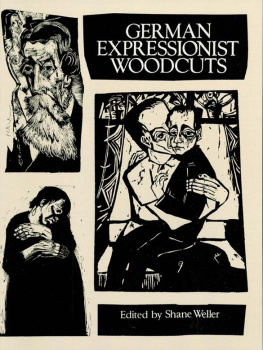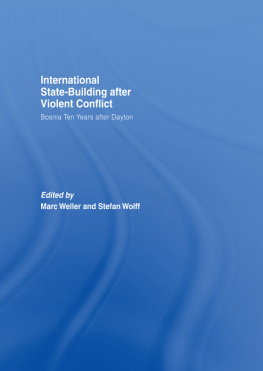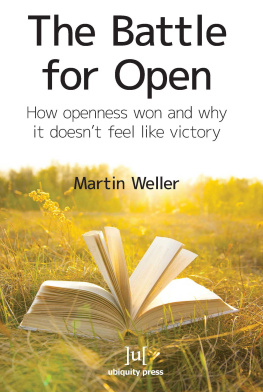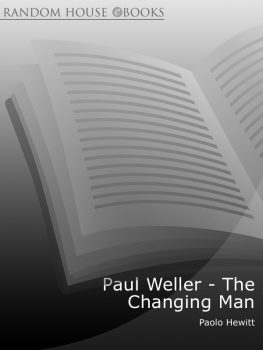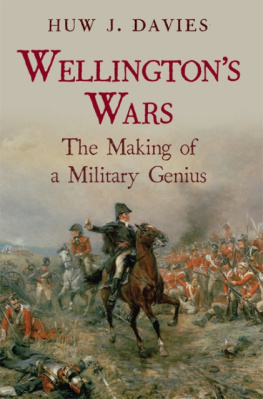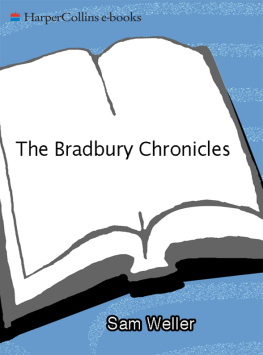A Greenhill Book

Published in Great Britain in 1993 and reprinted in 2000 by
Greenhill Books, Lionel Leventhal Limited
www.greenhillbooks.com
Reprinted in this format in 2013 by
FRONTLINE BOOKS

An imprint of
Pen & Sword Books Ltd
47 Church Street
Barnsley, South Yorkshire
S70 2AS
Copyright Jac Weller, 1972, 1993, 2000, 2013
ISBN 978 1 84832 700 9
EPUB ISBN: 978 1 47382 262 7
PRC ISBN: 978 1 47382 214 6
The right of the Jac Weller to be identified as Author of this work has been asserted
by him in accordance with the Copyright, Designs and Patents Act 1988.
A CIP catalogue record for this book is available from the British Library
All rights reserved. No part of this book may be reproduced or transmitted in any form or
by any means, electronic or mechanical including photocopying, recording or by any
information storage and retrieval system, without permission from the Publisher in writing.
Printed and bound in England by CPI Group (UK) Ltd, Croydon, CR0 4YY
Publishing History:
Wellington in India was first published in 1972 (Longman Group Limited)
and was reproduced in 1993 and 2000 by Greenhill Books, exactly as the original edition,
complete and unabridged, with the addition of a new foreword by the author.
Reprinted now, in 2013, by Frontline Books.
Pen & Sword Books Ltd incorporates the Imprints of Pen & Sword Aviation,
Pen & Sword Family History, Pen & Sword Maritime, Pen & Sword Military,
Pen & Sword Discovery, Pen & Sword Politics, Pen & Sword Archaeology,
Pen & Sword Atlas, Wharncliffe Local History, Wharncliffe True Crime, Wharncliffe Transport,
Pen & Sword Select, Pen & Sword Military Classics, Leo Cooper, The Praetorian Press,
Claymore Press, Remember When, Seaforth Publishing and Frontline Publishing
For a complete list of Pen & Sword titles please contact
PEN & SWORD BOOKS LIMITED
47 Church Street, Barnsley, South Yorkshire, S70 2AS, England
E-mail:
Contents
Illustrations
Appearing between pages 170 & 171
Foreword
The work for Wellington in India was begun at the same time as preparation for my second trip to Vietnam, in 1968. Our actual time in India was sandwiched in between a visit to Borneo with the British Army and a long stay in Vietnam with my own. My Little Wife and I were able, however, to compartmentalize nicely. In India we were totally free of any modern wars and had the aid of the Indian Army, their Colonel, his wonderful driver and their jeep. We followed virtually all Wellingtons movements, but not in their original sequence.
India is not a friendly country for journalists, at least not during the season of the year that we chose. My Little Wife and I were eating hard boiled eggs that we opened ourselves and bananas in the same fashion, but there was no way to get enough purified water. Our health was not happy although we did manage to remain upright. We were thirty-eight days mostly without contact with things like modern plumbing from the time we left the Indian Army Infantry Training Center at Maow until we arrived at Bombay.
As Englishmen know so well, India can be beautiful especially early in each day. Driver just couldnt have been a better human being. He presented My Little Wife with flowers almost every morning. I still remember a teenager bringing a relic from the battle from his horde in the town of Assaye. I accepted it humbly, but paid five times what our Colonel suggested and bought only one piece from his small collection.
We remember Seringapatam vividly not only for the ornamented fortifications, but also for the decrepit cobra who swayed unsurely to the playing on a water pipe by his owner. We met no Gunga Dins, but South India has a charm all its own and the oldest issue military firearms still in use anywhere.
We continue to feel that no one should write about a battle that he hasnt walked over, or at least walked and jeeped around. We had enough time and transportation; we followed precisely in the Dukes footsteps most of the way. Understanding India is not easy for Americans, but we had on our side two lifetimes devoted to other military campaigns.
I arrived in Vietnam that time almost precisely at the beginning of the enemys Tet offensive. I was there during the early weeks of what was a first-rate fight and didnt remain in the Caravel Bar to get my knowledge of what was happening, or depend on what local Public Information Officers said. It was a good time, with daily conversation about local and Far East military history. The young officers were often keen to hear what I had to say.
What would Wellington have done if hed commanded the U.S. Army in Vietnam?
Tough to answer without hurting feelings! But if my work has any usefulness at all, this question has to be addressed. The enemy in 1795 would have been different, but not much. The terrain, India in 1795 and Indo-China in 1970, would have been much the same. The men who fought for Wellington and Westmorland were mostly Anglo-Saxon, but not commanded in the same manner. Colonel Arthur Wellesley, to give him his contemporary title, lacked many things including military size and sophistication, but he won all the way along the line in the Far East, in the Peninsula, and at Waterloo and probably would have won Tet also. The only reason for my doubting this statement is the stark fact of the modern telephone. General, the President is on the wire for you again!
JAC WELLER
Preface
The man whom the world knows as Wellington began to demonstrate his military ability in the East. We all know the bare ribs of this, but India is a long way away. The best original records still exist and are relatively easy to obtain, but thorough study of them presents problems. It is partly fascinating drudgery and partly detective work; both occupations are time-consuming. Most of us who have studied Wellingtons whole life have been more thorough in connection with Salamanca than Assaye. Ciudad Rodrigo is more often visited than Gawilghur. It is easier to trace the least conspicuous British regiment in the Waterloo campaign than the best known East India Company unit through any series of actions.
Biographers and others, including the Duke himself, have come to the conclusion that when he returned to Europe in 1805, his abilities were fully developed. With some reservation, I agree; in India he had done most of the things he did so well later in Europe. He did not suddenly receive, for instance, an inspiration from on high about how to cross rivers or even employ again field guns after they had been taken by the enemy. In India he had used, or had been opposed with, most of the innovations he employed in the Peninsula and at Waterloo. He learned his trade in an area where the stakes were not so high, nor control by antiquated superiors so likely.
I expected to find a great many instances of this military apprenticeship and found even more than I anticipated. My study led me, however, to a full understanding of something I had only half grasped before. The years the three Wellesley brothers spent in India were crucial to the development of the British Empire both in India and throughout the world. Arthurs contributions, both military and civil, were greater than I had realized. Assaye is a remarkable victory, but the quick and complete pacification of Mysore after May 1799 appears at least as important today. As I read, thought and talked to a few friends, I became conscious of more than one man. Wellington in India was a member of a team. His story from 1797 to 1805 is closely related to that of his elder brother, the Earl of Mornington and later Marquess Wellesley, his younger brother, the Hon. Henry Wellesley, and many others. To some extent, the original scope of this book has been broadened to include them.




